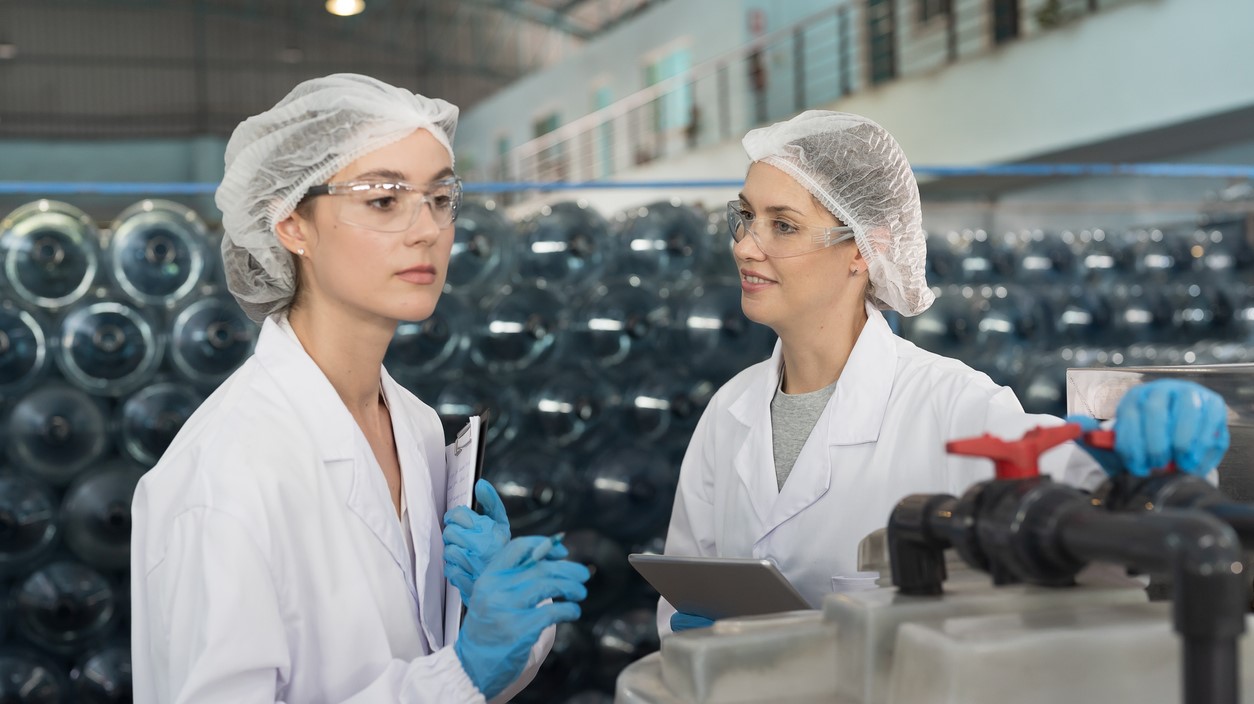3 Tips to Find the Right Food Safety Apparel Suppliers
Maintaining food safety in a manufacturing environment requires frontline workers’ diligent adherence to hygiene practices, your company’s food safety policy, and the regulations that govern them. With so many moving parts and vendors to consider in each food safety plan, it can be easy to overlook the quality of your food safety apparel. However, the gloves, hairnets, aprons, and other personal protective equipment (PPE) that prevent contamination of products during handling can compromise food safety if your apparel suppliers don’t adhere to industry standards as well.
That’s why it’s important to evaluate food safety apparel suppliers with the same level of care and scrutiny as every other vendor you work with. Here’s what to keep in mind:
1. Look for food safety apparel suppliers who are knowledgeable about the industry
Food and beverage manufacturing is an incredibly niche industry with specific and complex needs. Sourcing from a food safety apparel supplier that isn’t fully familiar with regulations about laundering garments, adherence to various food safety schemes, or hazards to watch out for in their own operation could create contamination risks and undermine your entire operation. When interviewing prospective suppliers, do the following:
- Request a list of their clients in the industry. Apparel suppliers that work primarily or entirely with other food and beverage companies will have a better understanding of your facility’s needs, as well as greater motivation to maintain their credibility.
- Ask open-ended questions about their food safety protocols. Apparel suppliers should be able to confidently explain aspects of their operation that pertain to food safety, such as their clean/dirty separation policy or how they ensure garments are properly sanitized. Be wary if they fail to answer questions specifically or knowledgeably.
- Identify which food safety standards or schemes the supplier follows. If possible, choose a food safety apparel vendor that’s measuring themselves against the same standards as your company.
- Request samples of their products for inspection, or even a tour of their facilities, prior to signing them as a supplier.
2. Ensure all apparel conforms with food safety standards and regulations
Cotton, linen, and other types of reusable garments should have specific attributes to prevent contamination and comply with food safety standards. For example, garments like jackets and shirts shouldn’t have buttons or velcro, and should instead use snaps for closure. Garments worn on the frontline also cannot have pockets above the waist.
It’s important to carefully inspect every shipment of apparel that comes from the supplier to ensure all items are in compliance with established standards. If a garment supplier provides apparel for other types of industries, they can accidentally mix non-compliant versions of their garments in with your order and ship items that don’t meet standards. In addition, any disposables they provide must also comply with industry standards, such as gloves for food processors.
3. Audit food safety apparel on a regular basis
It’s important to audit your food safety apparel suppliers’ products with the same regularity and diligence that you evaluate other suppliers. Add the apparel supplier to your team’s audit schedule and, if necessary, assign additional stakeholders for the evaluation.
Another important procedure to follow in the audit process is to swab reusable garments for different types of bacteria. If the supplier hasn’t used the correct water temperatures or enough detergent when laundering, any bacteria that survives could contaminate your entire facility, even if your staff follows your food safety program perfectly.
Closing Compliance Gaps In Food Safety Apparel
Food and beverage manufacturers are responsible for the safety of every single product they enter into the market. That requires more than diligent adherence to their own food safety programs — they have to ensure their suppliers are up to standard as well. With so much at stake, it’s imperative to have a partner that can help identify and correct any potential food safety gaps in your operation.
AIB International has a more than 100-year history of helping clients meet the highest standards in the industry. Our Gap Assessment can help you mitigate any type of risk in your food safety program — including those posed by food safety apparel suppliers. Click here to learn more.


